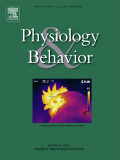
Adaptive Human Behavior and Physiology
Scope & Guideline
Illuminating the Science of Human Response
Introduction
Aims and Scopes
- Evolutionary Psychology:
The journal emphasizes research that connects evolutionary principles to psychological processes, exploring how human behavior has adapted over time to meet survival and reproductive challenges. - Physiological Mechanisms:
It investigates the physiological underpinnings of behavior, such as hormonal influences (e.g., testosterone, cortisol) on social behavior, mating strategies, and health outcomes. - Cross-Cultural Studies:
The journal encourages studies that compare behaviors and physiological responses across different cultures, providing insights into the universality or variability of human adaptive strategies. - Life History Theory:
Research often focuses on life history strategies, examining how individuals allocate resources to growth, reproduction, and survival in response to environmental pressures. - Health and Well-Being:
The journal integrates research on how adaptive behaviors impact physical and mental health, including the role of stress, social support, and environmental factors.
Trending and Emerging
- Impact of Social Media and Technology on Relationships:
Emerging studies are increasingly examining how modern technology, including social media, influences human relationships, mating behaviors, and societal dynamics, reflecting contemporary concerns. - Mental Health and Adaptive Strategies:
There is a growing emphasis on the intersection of mental health and adaptive strategies, particularly how physiological responses to stress and social dynamics affect well-being. - Incel and Male Violence Phenomena:
Recent papers have begun to address complex issues surrounding incel culture and its psychological underpinnings, indicating a trend toward understanding contemporary male aggression and social dynamics. - Environmental Influences on Health and Behavior:
Research is increasingly focusing on how environmental factors, including socio-economic conditions and cultural contexts, shape health behaviors and physiological responses. - Neurobiological Approaches to Understanding Behavior:
There is a rising trend in incorporating neurobiological perspectives, examining brain function and structure in relation to behavioral adaptation, indicating a shift towards interdisciplinary approaches.
Declining or Waning
- Traditional Gender Roles in Mating Strategies:
Earlier publications heavily focused on rigid gender roles and their influence on mating strategies. Recent titles show a shift towards more nuanced understandings of gender and sexuality, indicating a decline in this traditional approach. - Static Models of Personality and Behavior:
There seems to be a waning interest in static models that oversimplify personality traits. Recent studies favor dynamic interactions and contextual factors, suggesting a move away from fixed personality assessments. - Overemphasis on Biological Determinism:
While biological factors remain important, there is a noticeable decline in studies that solely attribute behavior to genetic or hormonal determinism. The current trend leans towards a more integrative approach that considers social and environmental influences.
Similar Journals

EMOTION
Exploring the Depths of Human EmotionEMOTION is a leading peer-reviewed journal published by the American Psychological Association, focusing on the intricate dynamics of human emotions. With its ISSN 1528-3542 and E-ISSN 1931-1516, this esteemed journal has established itself as a pivotal resource in the fields of Psychology and Medicine, proudly ranking in the top quartile (Q1) according to the latest metrics and scoring a remarkable position as #22 out of 216 in the Scopus General Psychology category, placing it in the 90th percentile of its field as of 2023. Spanning from its inception in 2001 to 2024, EMOTION publishes cutting-edge research, theoretical articles, and empirical studies that advance our understanding of emotional processes and their implications for psychological well-being. While EMOTION is not an open-access journal, it remains a crucial platform for researchers, professionals, and students seeking to engage with and contribute to the burgeoning field of emotional psychology.

Psychology Research and Behavior Management
Navigating the complexities of behavior and mental health.Psychology Research and Behavior Management is a leading peer-reviewed journal that serves as a vital resource in the field of psychology and mental health. Published by DOVE MEDICAL PRESS LTD since 2008, this open access journal allows for the free dissemination of knowledge, ensuring that valuable research findings are accessible to a global audience. With an impact factor that positions it within the Q2 category in both Psychiatry and Mental Health as well as in Psychology (miscellaneous), the journal is recognized for its significant contribution to the understanding of behavioral management and psychological health. Its rankings—#61 out of 216 in General Psychology and #222 out of 567 in Psychiatry and Mental Health—further highlight its influence within these critical fields. By providing an avenue for innovative research and insights, Psychology Research and Behavior Management aims to support researchers, professionals, and students in exploring and addressing complex psychological issues, ultimately fostering informed practices and advancements in mental health care.

Evolutionary Psychology
Connecting Evolutionary Theory with Psychological ScienceEvolutionary Psychology is a crucial journal published by SAGE Publications Inc, dedicated to exploring the intersection of psychological sciences and evolutionary theory. Established as an Open Access platform since 2003, this journal aims to facilitate the dissemination of groundbreaking research that examines how evolutionary processes shape human behavior and cognitive functions. With a range of articles that cater to various aspects of psychology, especially in fields such as Behavioral Neuroscience, Social Psychology, and general Medicine, the journal holds significant relevance in contemporary academic discourse. Although it currently resides in the lower quartiles (Q4 and Q3) in its respective categories, it provides a vital space for innovative ideas and perspectives, inviting researchers and students to contribute and engage with the rapidly evolving understanding of human psychology through an evolutionary lens. The journal is indexed with an ISSN of 1474-7049, ensuring broad accessibility and outreach to a global audience.

Integrative Psychological and Behavioral Science
Advancing the Frontiers of Human UnderstandingIntegrative Psychological and Behavioral Science is a premier scholarly journal published by Springer, dedicated to advancing the understanding of complex psychological and behavioral processes. As an essential resource for researchers and practitioners alike, this journal features peer-reviewed articles that span diverse disciplines, including psychology, anthropology, cultural studies, and philosophy, reflecting its broad interdisciplinary scope. With an impressive impact factor and categorization across various quartiles, including Q1 in Cultural Studies and Philosophy, it stands out in the academic landscape, fostering innovative research that informs both theory and practice. The ISSN for this journal is 1932-4502, and the E-ISSN is 1936-3567. While the journal does not currently operate under an open access model, it ensures rigorous academic standards and accessibility through institutional subscriptions. With converged years from 1969, 1976, and from 2007 to 2024, Integrative Psychological and Behavioral Science remains a vital platform for dialogue and discovery in the pressing issues that shape human behavior and mental processes.

CHEMICAL SENSES
Exploring the Intricacies of Olfaction and Gustation.CHEMICAL SENSES, published by Oxford University Press, is a premier journal dedicated to the interdisciplinary study of chemical senses, including olfaction, gustation, and their impact on behavior and physiology. With a significant history spanning from 1974 to 2024, the journal has established itself in the field, achieving commendable rankings in various categories—Q3 in Behavioral Neuroscience and Q2 in both Physiology and Sensory Systems, highlighting its essential contributions to these domains. Although it does not currently offer open access, the journal maintains a robust academic reputation with strong Scopus rankings, placing it in the top percentiles of its categories: 91st in Neuroscience—Sensory Systems and Behavioral Neuroscience, and 80th in Physiology (medical). Researchers, professionals, and students engaged in the exploration of sensory processing will find Chemical Senses an invaluable resource for the latest findings and insights in this dynamic field.

Frontiers in Human Neuroscience
Advancing the Frontiers of Neuroscience KnowledgeFrontiers in Human Neuroscience is a premier open access journal published by FRONTIERS MEDIA SA, dedicated to advancing the understanding of the complexities of human neuroscience. With an ISSN of 1662-5161, the journal has established its prominence in various fields, achieving a Q2 ranking in categories such as Behavioral Neuroscience, Neuropsychology and Physiological Psychology, and Psychiatry and Mental Health as of 2023. Since its inception in 2008, Frontiers in Human Neuroscience has consistently contributed to the scholarly dialogue by offering a platform for innovative research that bridges the gap between neuroscience and behavioral science. The journal's rigorous peer-review process and commitment to open access ensures that findings are readily available, promoting collaboration and progress within the academic community. With an impact on neuroscience disciplines, it stands at the forefront of the field, inviting researchers, professionals, and students alike to engage with cutting-edge studies and developments. The journal's address is located in Lausanne, Switzerland, where it continues to flourish as a hub for neurobiological exploration.

Nonlinear Dynamics Psychology and Life Sciences
Innovating the Study of Dynamic Systems and Human BehaviorNonlinear Dynamics Psychology and Life Sciences is a leading journal published by the SOC CHAOS THEORY PSYCHOLOGY & LIFE SCIENCES, focusing on the intersection of nonlinear dynamics and psychological phenomena as well as their implications in life sciences. With an ISSN of 1090-0578 and an E-ISSN of 1573-6652, this journal stands out as a reputable source of innovative research and analytical studies that contribute significantly to the fields of applied mathematics and psychology. By delving into the complex behaviors and patterns of dynamic systems, the journal addresses vital contemporary issues, making it essential reading for researchers, professionals, and students alike. Although it operates on a traditional access model, the journal's insights are invaluable for understanding the empirical background behind nonlinear dynamics in psychological research. Recognized within the academic community for its contributions, it holds a 2023 Scopus ranking of #436 out of 635 in the Applied Mathematics category, placing it in the 31st percentile, and it is designated as Q3 in its quartile categorization. As a bridge between theoretical foundations and real-world applications, Nonlinear Dynamics Psychology and Life Sciences aims to foster interdisciplinary dialogue and inspire future research in this exciting and evolving field.

Religion Brain & Behavior
Innovating Insights into Religion and PsychologyReligion Brain & Behavior is a premier journal in the domains of Experimental and Cognitive Psychology and Religious Studies, published by Routledge Journals, Taylor & Francis Ltd. With an impressive Q1 ranking in Religious Studies and Q2 ranking in Experimental and Cognitive Psychology for 2023, this journal is recognized for its pivotal role in advancing the interdisciplinary study of the interactions between religion, brain function, and behavior. The journal's rigorous peer-review process ensures the publication of high-quality research that contributes significantly to our understanding of cognitive processes as influenced by religious belief and practice. With its notable Scopus ranking placing it in the top 2% of journals in Religious Studies, and the accessibility to a diverse range of scholarly works, Religion Brain & Behavior is an essential resource for researchers, professionals, and students seeking to explore the complexities of religion and cognition in a scholarly context. It is based in the United Kingdom, operating from its headquarters at 2-4 Park Square, Milton Park, Abingdon.

JOURNAL OF EXPERIMENTAL PSYCHOLOGY-APPLIED
Catalyzing Change through Empirical ExplorationThe JOURNAL OF EXPERIMENTAL PSYCHOLOGY-APPLIED, published by the American Psychological Association, is a premier outlet for cutting-edge research in the field of Experimental and Cognitive Psychology. With an impressive impact factor indicated by its Q1 ranking in 2023, this journal stands as a leading resource for scholars and practitioners, fostering a deeper understanding of the applications of psychological principles. With its extensive coverage from 1995 to 2024, the journal delivers a wealth of empirical studies, theoretical discussions, and methodological innovations that inform both academic learning and practical implementations in psychology. Although the journal does not offer open access options, researchers can gain insights into its influential findings through libraries or institutional subscriptions. Located in Washington, DC, it serves as a critical platform for disseminating high-quality research that bridges the gap between theory and real-world applications, supporting the advancement of knowledge in the vital area of human cognition and behavior.

PHYSIOLOGY & BEHAVIOR
Transforming Insights into Biological and Behavioral DynamicsPHYSIOLOGY & BEHAVIOR, published by Pergamon-Elsevier Science Ltd, is a premier journal that has been illuminating the intersections of physiological and behavioral research since its inception in 1966. With a promising impact reflected in its 2023 category quartiles— ranking Q2 in both Behavioral Neuroscience and Experimental and Cognitive Psychology, and a prior Q1 in Philosophy—this journal stands at the forefront of multidisciplinary research. It holds respectable ranks within the Scopus database, placing 27th out of 165 in Experimental Psychology and 25th out of 88 in Behavioral Neuroscience, highlighting its significant contribution to the academic community. The journal encourages the dissemination of high-quality research objectives that explore the intricate connections between behavior and biological processes, making it a vital resource for researchers, professionals, and students alike. Although access is not currently open, the journal continues to provide deep insights into crucial developments in its field, ensuring its readers stay updated on the latest scientific advancements.